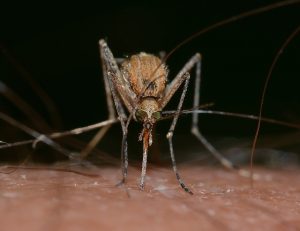By NewsDesk @infectiousdiseasenews
Vermont health officials are reporting the first West Nile virus (WNV) positive pool of mosquitoes this year in Essex.

The infected mosquitoes were collected by the Vermont Agency of Agriculture and tested at the Health Department Laboratory as part of an ongoing interagency mosquito surveillance program that helps the State better understand the risk of diseases spread by mosquitoes. More than 2,000 mosquito pools from around the state have been tested so far this year.
“We see West Nile virus in Vermont mosquitoes year after year, so it isn’t surprising to see this pool of mosquitoes test positive,” said Natalie Kwit, DVM, the state’s public health veterinarian. “Luckily, we can take a few quick and easy steps to prevent mosquito bites and avoid West Nile virus and other diseases spread by mosquitoes.”
West Nile virus is spread through the bite of an infected mosquito. Most people infected with West Nile virus do not develop any symptoms, but for those who do, symptoms can include fever, headache, body aches, joint pains, vomiting, diarrhea and skin rash. Fewer than 1% of people who are infected have more serious symptoms like high fever, disorientation, tremors, and even paralysis. People age 50 and older have the highest risk of becoming seriously sick if they are bitten by a mosquito carrying West Nile virus. Symptoms can be treated, but there is no specific treatment for West Nile virus infection.
West Nile virus has previously been found in every county in Vermont. Since 2011, 12 cases of West Nile virus in Vermont residents have been reported, but no human cases have been identified in 2019.
Massachusetts reports 2nd human EEE case
“We see West Nile virus in Vermont mosquitoes year after year, so it isn’t surprising to see this pool of mosquitoes test positive,” said Natalie Kwit, DVM, the state’s public health veterinarian. “Luckily, we can take a few quick and easy steps to prevent mosquito bites and avoid West Nile virus and other diseases spread by mosquitoes.”
Protect yourself from mosquito bites:
- Wear long-sleeved shirts and long pants when outdoors.
- Limit time outside at dawn and dusk when mosquitoes are more likely to bite.
- Use an EPA-registered insect repellent. The EPA has an easy tool to help find the right repellent for you.
- Protect little ones by covering strollers and outdoor playpens with mosquito netting.
- Mosquito-proof your home by fixing holes in screens and making sure screens fit well into doors and windows.
- Get rid of standing water in spots like gutters and empty flowerpots, which can become a breeding ground for mosquitoes. If you have a bird bath, change the water every three or four days.
West Nile virus outbreak declared in Las Vegas area
California: 1st human St. Louis Encephalitis cases reported in Imperial County
Plague risk prompts cancellation of overnight camping for Phish Labor Day concerts in Colorado

